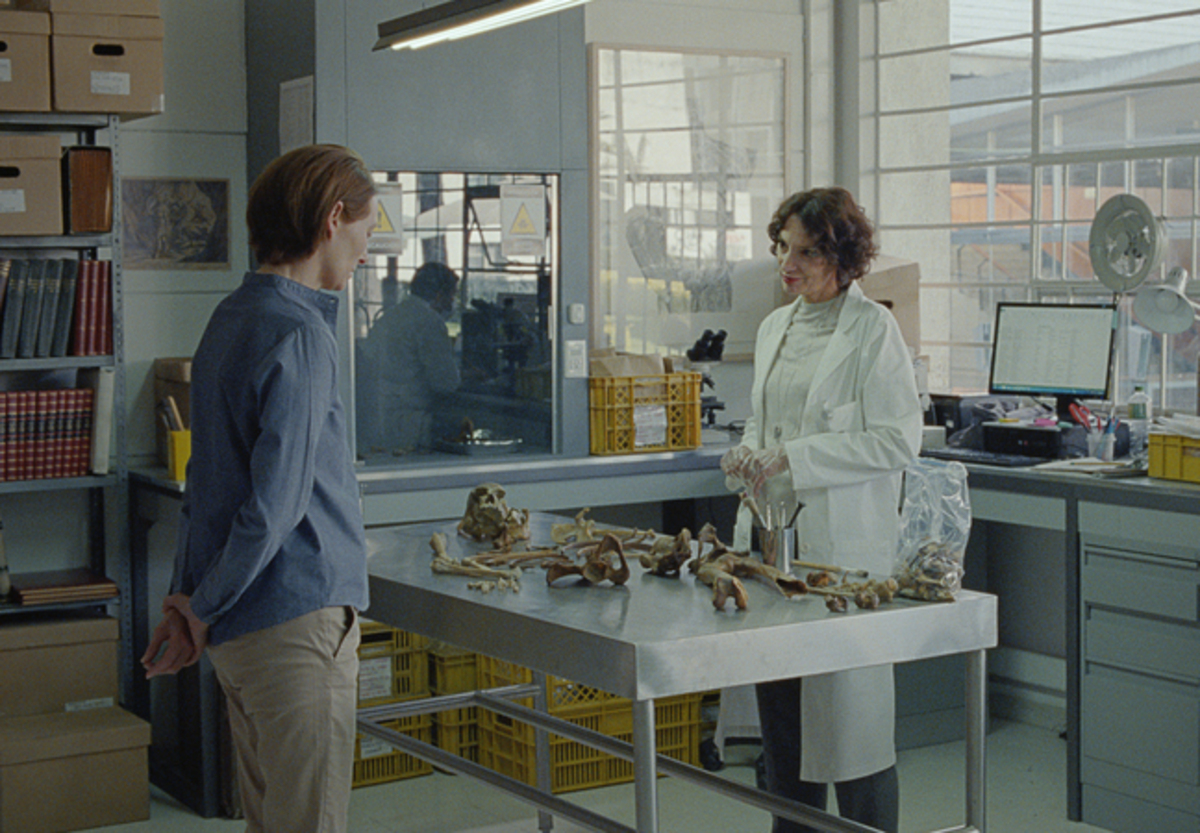
Memoria
directed by Apichatpong Weerasethakul
starring Tilda Swinton, Elkin Díaz, Jeanne Balibar, Juan Pablo Urrego, Daniel Giménez Cacho
To be able to be free, you need to get yourself out of everything. You have to be outside your own experience. You shouldn’t see yourself as a subject or as an object of the experience. You have to be outside. You have to be an observer without the intention of being an observer. You, just aware of the awareness.
In Memoria, the book, we have the privilege of seeing into the nervous system—the multi-dimensional graph of stories, thoughts, places, concepts, histories, research, and images—that constructs the manifestation of Memoria the film. In the closing of an early section titled, “4 April 2017 Talk with Joseph,” the quote above appears, which perfectly articulates how the film itself is structured and how we, as the audience, in viewing it, depart from our own seats in dark theaters, from the psychological space between our reality and the film’s fiction, and arrive at a plane of existence connecting us to each other across time and space and beyond our normal range of perception and cognition.
Though its ability to allow us to transcend our reality and the world of the film itself is profound, Memoria’s core plot can be summarized in a few basic sentences. Jessica is awakened by a thunderous sound. At first, she thinks the sound is coming from outside of her, but soon she realizes it’s emanating from inside of her own head, and she gradually begins to understand it through her many interactions with others.
As a scientist herself (though she’s out of her typical domain here because she’s an orchidologist), Jessica initially takes an active, investigative measure to comprehend the sound. Naturally, given that it is something that only she can hear, she hopes to extract it for herself to review and study on demand. To accomplish the extraction, Jessica meets Hernan (Juan Pablo Urrego), a sound engineer recommended by her brother-in-law, Juan (Daniel Giménez Cacho), and with Hernan, she attempts to replicate the sound as she perceives it. As she struggles to precisely describe what she’s hearing, Hernan compounds different sounds and processing techniques, and she quickly discovers that there may not be a well-defined ontology for the sound, or at least one that can be verbalized. However, Hernan manages to produce something that is quite close, but the near-reproduction doesn’t bring Jessica any closer to the sound’s origins, which may be more subterranean or more primordial than she previously believed.
Thus, as Memoria proceeds, Jessica’s process to understand the sound abandons any formal methodology and instead becomes more instinctive and subconsciously reactive as her interactions with the people and everything around her quietly direct her movements and her experiences. They take her to a park where Hernan shares the marriage of her sound with his own personal music and then to a warehouse where the two shop for fridges to preserve flowers. They point her to Agnes (Jeanne Balibar), an archaeologist studying remains from a construction site who shows Jessica the trepanned, ancient skull of a young girl. They drift her toward a practice room where an ensemble is casually performing in front of a small audience. They lure her to the countryside near Agnes’s excavation site where she meets an older version of Hernan (Elkin Díaz), who may or may not have lived an entirely different life. Jessica observes and listens, but she’s not trying to form any hypothesis, so as she moves from different spaces and interacts with the surrounding living and non-living things, her senses transform into deep awareness and open consciousness, both of which allow her to happen upon the extraterrestrial, otherworldly source of the sound.
We, as the audience, can try to be analytical about Jessica’s experiences as we see them on the screen and attempt to determine the relations between encounters, but the fluid, interconnected soundscapes of Memoria pull us away from such acts and coax us into a state where we can absorb all layers of the film at once without ever feeling the need to cognitively register each individual piece. And, here, in this entrancing, conductive state, we can connect to Jessica and ultimately our own present and past counterparts to distill what is fundamental in all of us: a desire to comprehend the unknown and our strategies to cope when the unknown remains beyond the reach of our senses.
In tandem, Memoria the book and film underscore how cinema is one of our strategies to accept and explore the unknowns of our individual and collective realities. Given that Memoria is Apichatpong Weerasethakul’s first feature film made outside of Thailand, both the book and film transmit Weerasethkul’s learnings, experiences, and reflections of a new, foreign environment. The book forms the foundational, mosaic textile that Weersethakul drapes into the exquisite, hypnotic moving sculpture that is the film, which reverberates with the lights and sounds of history and humanity and pulsates with a freedom of experience and expression, bringing us to a new height of cinematic and human awareness.
Memoria is traveling across North America now. Current and upcoming exhibition dates are available on the film’s website.












